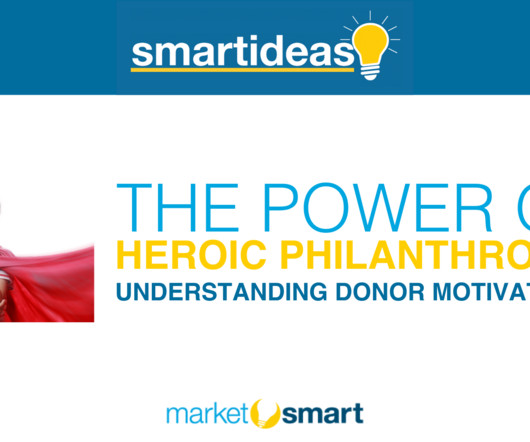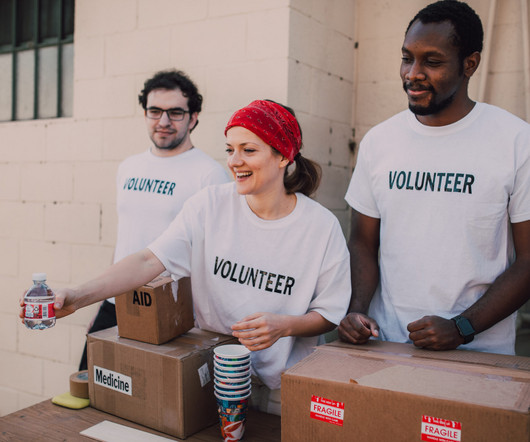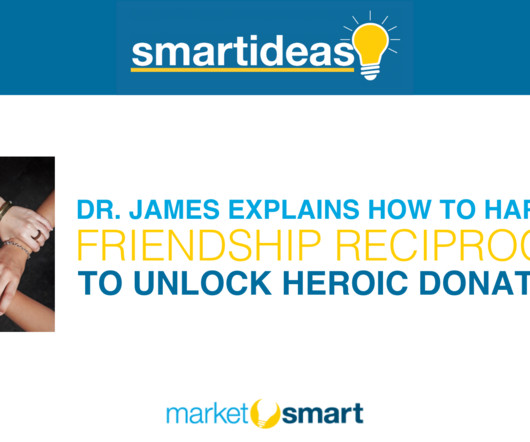The Power of Heroic Philanthropy: Understanding Donor Motivations
iMarketSmart
JUNE 12, 2023
In time of need, a friend would help. This happened even if the help could never be fully paid back. Getting unconditional help in a crisis is great. It can show the ability and willingness to deliver transactionally unjustified help and protection. This is different than helping those who aren’t in peril.











Let's personalize your content